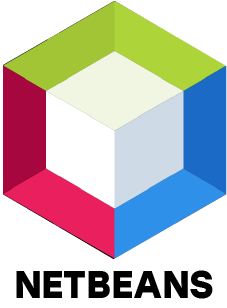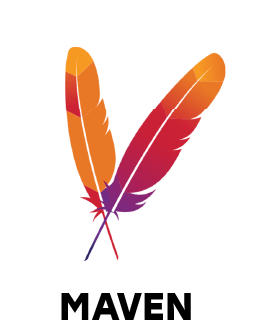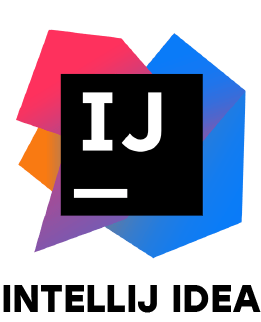Overview of Java Training with Placement Support in Kolkata
Java Training in Kolkata provides hands-on training for the entire Java Programming course. The course covers all of the essential aspects of Java programming, such as Core Java, Advanced Java, SOA, Java 8, Java EE, J2EE, Spring frameworks, JDBC architecture, and so on. This Java Course in Kolkata is intended to guide Java Developers, Programmers, Web Developers, Web Designers, and Database Administrators through the process of learning Java online. Learners can master core Java and J2EE concepts with the help of this Java certification in Kolkata. Enroll right now! Our ACTE Java Certification Course will help you improve your JAVA technical skills.
Additional Info
Reason Behind Java Popularity :
The fact that Java is an object-oriented programming (OOP) language is what makes it one of the most appealing languages. OOP provides a clean modular structure that makes it easier to solve complex problems. Its modular nature makes it easier for programmers to write reusable code and speeds up the development process. To create objects in Java programming, classes that define the data attributes and behaviors (defined by methods coded in the class) are used. Furthermore, Java includes features such as abstraction, encapsulation, polymorphism, and inheritance, as well as best practices and built-in packages, which make writing Java code easier.
Requirements for Java Certification :
It gives you a fresh perspective on the technology involved, and it encourages businesses to keep innovating to stay ahead of the competition. The java certification can be used to validate your skills. The certification provides a clear way for you to demonstrate to potential employers how you are prepared for the job. There is a greater demand for java developers, and it is estimated that the number of java developers will increase. This rate of growth is much faster than the overall rate of occupation growth. According to the projections over the next two years, there has been a significant change in the technical skillset, which has now become even more desirable. As a result, it emphasizes the understanding of the technology in short supply, making it simple to learn.
Technical Skill Sets of Java Developers :
- OOPS Concepts:
The Object-Oriented Programming work proposes a class and object-oriented programming language that tries to deal with concepts such as inheritance, encapsulation, abstraction, and polymorphism. The goal of OOP is to connect data and functions in order to improve code stability and safety.
- Design patterns:
In Java are standard solutions used to solve routine problems encountered during the software development life cycle. During the application of new modules, each Design Pattern acts as a blueprint that allows modification to solve any provided design issue in any code.
- Abstract Class in Java :
Abstract Classes in Java assist developers in achieving abstraction. In object-oriented coding, abstraction helps to reduce code complexity by displaying only the relevant details of the objects used in the system and improves code readability. Abstract classes are required in Java for the following reasons.
- Java Interface:
In Java Programming, an interface is an advanced level of abstraction. The interface in Java enables a more efficient and effective method of achieving abstract concepts in Java.
- Serialization:
Dependency injection in Java is a concept that deals with the conversion of objects into a byte stream required to distribute Java objects from one Java Virtual Machine to another and recreate them in their original form. Serialization allows developers to meet a variety of requirements in real-time scripting.
- Java Build Tools :
Developers must use a specific tool for each task assigned to them, depending on the task. Understanding the terms of Java Design tools is useful for a Java Developer because Java Build tools are projects that automate the creation of executable applications from source code. Maven and Gradle are two build tools that Developers should be familiar with.
- Java Web Technologies :
Web technology makes it simple and quick to create dynamic web content. Understanding the technique of establishing communication between multiple computer systems via markup languages is aided by a better understanding of Web technology. It provides a means to interact with the webserver for information, similar to websites. It makes use of HTML, JQuery, and CSS.
- Java Testing Tools :
It enables you to test your JSP pages and Web Applications using an interface that does not require you to launch your application in a web browser. They help with a variety of test activities such as planning, requirements, building, testing, defect logging, and testing analysis. Selenium is a testing tool.
Top Frameworks on Java Program :
- Spring:
The Spring framework is extensive and covers a wide range of features, including security and configuration, that are simple to learn. Furthermore, because it is the most popular web framework, there is a wealth of documentation and an active community. It delegated control to an external controller, which drove the flow. The events are the outside controller. Beans are things in Spring, and there is a BeanFactory that manages and configures these beans.
- Apache Struts :
Struts is another solid open-source web application framework. It adheres to the MVC (Model-View-Controller) paradigm and extends the JSP API. In a traditional servlet-JSP approach, if a user submits a form with his information, the information is routed to a servlet for processing, or the control is passed to the next JSP. Struts separate the View, Controller, and Model (data) and provide the binding between them via the struts-config.xml configuration file.
- Hibernate :
Hibernate solves two major issues with JDBC: JDBC does not encourage object-level relationships, and if you ever determine to transition to various databases, older queries may not work – implying a lot of changes – i.e. time. Hibernate adds an abstraction layer to the code, allowing it to be loosely coupled with the database. Establishing a database connection and performing CRUD operations are examples of such tasks.
- Dropwizard: :
Dropwizard is especially magical because it combines a slew of libraries from the Java ecosystem, including Jetty, Guava, Jersey, Jackson, and Metrics, into a single framework, resulting in a lightweight and lean application. Because of its out-of-the-box support for advanced configurations, logging, application metrics, and other features, this lightweight methodology involves completing your application quickly.
- Play :
Play is a slightly conventional and one-of-a-kind framework that favors convention over configuration. It is an open-source web application framework based on the MVC pattern. Scala, in addition to Java, can be used to create Play web applications..
- Apache Hadoop: :
Using master-slave design pattern, Hadoop aids in distributed data storage and processing. The data node is located in the Hadoop HDFS (Hadoop Distributed File System) layer of the master node (NameNode). It is a software framework that operates on the MapReduce programming model. These utilities can easily handle massive amounts of data (Big Data), storing, analyzing, and processing it to provide faster and more efficient results.
- Grails :
Grails is an easy-to-learn full-stack framework that is ideal for those who are just starting out in programming. While Grails is a web framework written in Groovy, it runs on the Java platform. Groovy is similar to Java, but it has a few more features than Java. If you already know Java, learning Groovy is a breeze.
Advantages of Java :
- Elective programming dialects are far more difficult to program, compose, gather, explore, and learn. Because Java is a less complex sum than C++, it makes use of programmed memory allocation and garbage collection.
- The flexibility to migrate effortlessly from one computer system to another is one of Java's most significant features. The ability to run the same program on a variety of computers is critical for the Website builder, and Java achieves this by being platform-agnostic at both the source and binary levels.
- It can run on any machine and does not require any special programming; however, the JVM must be installed on the machine.
- Java is a dispersed language because it provides a tool for distributing information and projects across multiple PCs, which improves the framework's presentation and proficiency. RMI (Remote Method Invocation) is a Java factor that allows distributed handling.
- It doesn't have a clear pointer. Aside from that, the approach of courses is marked by a system manager.
- In Java, there is pre-programmed memory for administrators that is monitored by the Java Virtual Machine (JVM). When the articles are no longer used by computers and don't make any reference to anything.
- A program can complete multiple tasks at the same time. Finally, the opportunity arose to become acquainted with the concepts of Multithreading in Java.
- Applications in the Internet era must execute in a distributed environment. Because the developer can use the TCP/IP interfaces in the code, this is possible with java apps. To implement such interfaces in a multi-user assessment, Java provides the Remote Method Invocation (RMI) package.
Best Reason to Get Java Online Certification :
- The goal of becoming Java certified is to improve your team's performance. I've found that passing the SCJP in the past and the OCPJP now with a strong score boosts your group's perception of you. People are more aware of your Java skills than they were previously, and they hold you in high esteem.
- Java certification is required, few positions favor a qualified Java developer over one who is not. A fresher's chances of being called from these firms increase if he passes Java qualifications like OCA or OCPJP7 with good grades.
- Java certifications boost your self-assurance significantly. Even if you don't have much real-world Java programming expertise, you'll feel like you know the language a lot better, which will show in your interview when it matters the most. I've seen certified Java programmers perform significantly better than typical programmers on core Java.
- The Java certification looks great on a résumé. Go for Java certification if you don't have an amazing academic record or anything noteworthy in your extracurricular activities. This will close the holes in your CV. It can also be used as a filtering criterion. With 100 resumes from freshers and junior Java engineers, a hiring manager has enough time to conduct interviews.
- Java certified professionals, often earn a better income and package than Java developers with the same skill set but no certification. One reason for this could be because businesses place a higher value on Java Certified employees than on those who are not. True, some employers specifically state that they will only hire Oracle Certified Professionals.
Show More








































